The history of mathematics is a rich tapestry woven by the brilliant minds of individuals who have contributed significantly to the field. These mathematicians have not only shaped the way we perceive the world but have also left a lasting legacy that continues to influence mathematics and science today. In this exploration of the 15 most important mathematicians in history, we embark on a journey through time, uncovering the remarkable achievements and profound insights of these intellectual giants who have forever altered our understanding of numbers, geometry, and the fundamental principles that govern our universe.
The List of the 15 Most Important Mathematicians in History
15. Ada Lovelace
(1815-1852)

Ada Lovelace (1815-1852) was an English mathematician and writer, known for her significant contributions to early computing. She is often recognized as the world’s first computer programmer.
Lovelace’s work was primarily focused on Charles Babbage’s early mechanical general-purpose computer, the Analytical Engine. She translated an article on the engine and added her extensive notes, which included a detailed method for calculating Bernoulli numbers using the machine. This is considered the first computer program.
Lovelace’s notes went beyond a simple translation, as she grasped the engine’s potential for more than just numerical calculations. She envisioned that it could be used for any form of information processing, including creating music and art. Her insights into the broader applications of computing make her a visionary figure in the history of computer science.
Her contributions to the field of computer programming and her recognition of the potential for computers to do more than just arithmetic laid the foundation for the digital age we live in today.
14. Georg Cantor
(1845-1918)
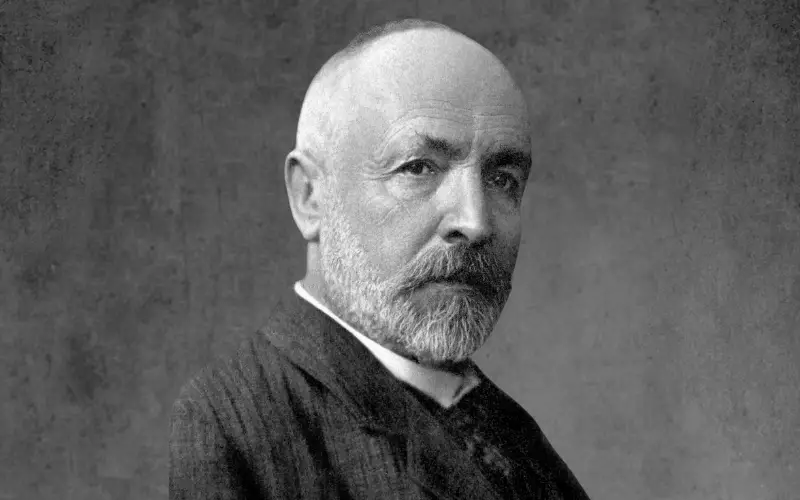
Georg Cantor (1845-1918) was a German mathematician whose groundbreaking work revolutionized the field of mathematics. His most significant contribution was the development of set theory, which laid the foundation for understanding the concept of infinity and the different sizes of infinity.
Cantor introduced the concept of transfinite numbers, demonstrating that there are infinite sets of different sizes. His work showed that not all infinities are equal; some are larger than others. This concept sparked intense debate and controversy in the mathematical community.
Cantor’s work on set theory and transfinite numbers opened new horizons in mathematics and led to profound changes in our understanding of the infinite. His contributions have had a lasting impact on various branches of mathematics and continue to influence the field today.
13. Bernhard Riemann
(1826-1866)
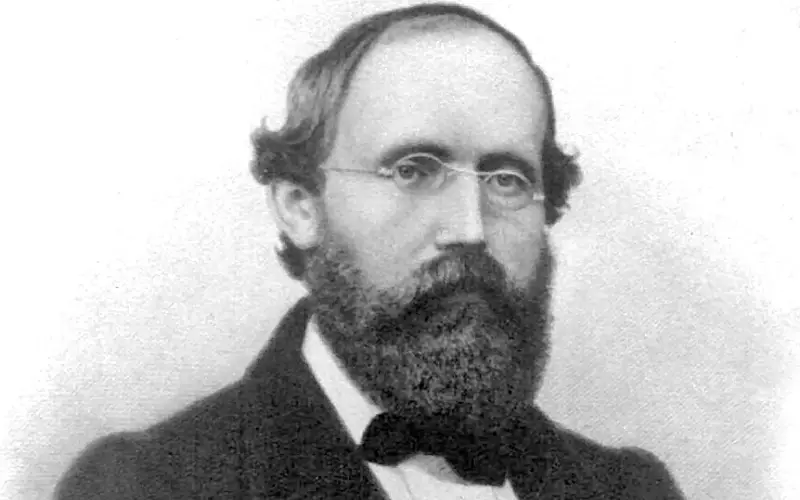
Bernhard Riemann (1826-1866) was a German mathematician known for his groundbreaking contributions to differential geometry and the understanding of curved spaces. His most influential work is his 1854 habilitation dissertation, “On the Hypotheses Which Lie at the Foundations of Geometry,” which introduced Riemannian geometry.
Riemann’s dissertation laid the foundation for non-Euclidean geometry and Riemannian geometry, which underpins Albert Einstein’s theory of general relativity. He introduced the concept of a manifold, a space that can be curved, and developed the Riemann curvature tensor to describe the curvature of these spaces.
Riemann’s work profoundly impacted not only mathematics but also theoretical physics. His ideas transformed our understanding of the geometry of the universe and continue to be essential in fields like differential geometry, topology, and physics, influencing developments in cosmology and the theory of gravitation.
Read More Fun Facts
Learn more fun facts with Trivia Mastermind content.
12. Leonhard Euler
(1707-1783)
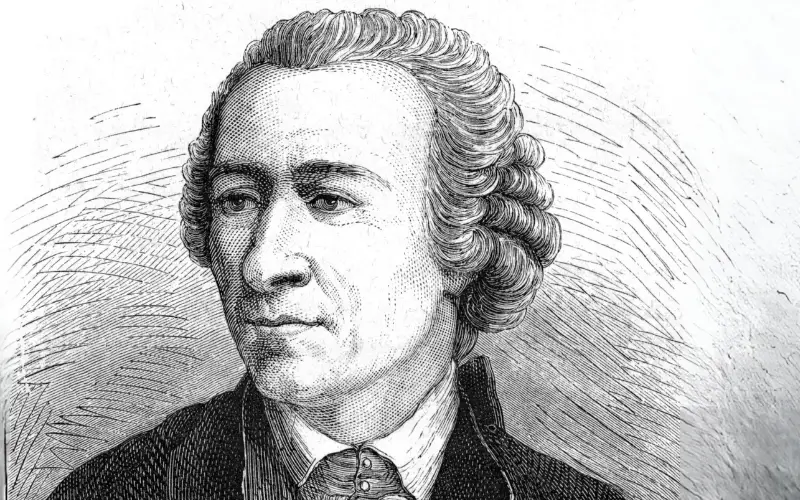
Leonhard Euler (1707-1783) was a Swiss mathematician and one of the most prolific and influential mathematicians in history. His vast body of work, which includes over 800 books and articles, has left an indelible mark on various branches of mathematics.
Euler made significant contributions to number theory, graph theory, and mathematical analysis. He introduced the concept of a mathematical function and developed the notation f(x) to represent it. Euler’s work on graph theory, specifically the famous “Seven Bridges of Königsberg” problem, is considered the precursor to modern graph theory. He also made substantial contributions to number theory, prime number distribution, and the theory of partitions.
In addition, Euler was a pioneer in the development of the calculus of variations and differential equations. He formulated the famous Euler’s formula, which connects complex exponentials and trigonometric functions and is fundamental in complex analysis.
Euler’s works continue to be foundational in mathematics, and his notation and concepts are widely used today. His contributions have left a lasting legacy in various mathematical fields, making him one of the most celebrated mathematicians in history.
11. Carl Friedrich Gauss
(1777-1855)
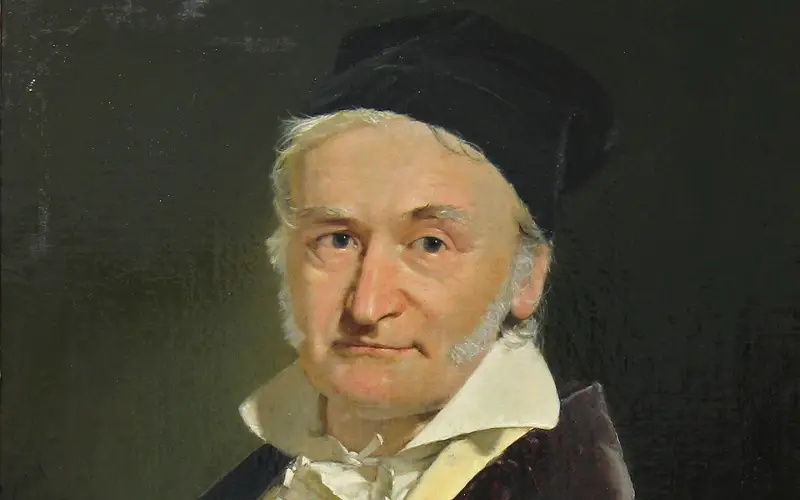
Carl Friedrich Gauss (1777-1855) was a German mathematician who made profound contributions to a wide range of mathematical disciplines. Often referred to as the “Prince of Mathematicians,” Gauss’s work had a lasting impact on the field.
One of his most significant contributions was to number theory. He proved the fundamental theorem of arithmetic, which states that every integer greater than 1 is either a prime number or can be uniquely represented as a product of prime numbers. Gauss also developed modular arithmetic and made essential contributions to the study of congruences and quadratic forms.
In the field of geometry, Gauss developed non-Euclidean geometry, which challenged and extended our understanding of the foundations of geometry. He also made crucial advances in differential geometry and the study of curved surfaces.
In addition to these contributions, Gauss made pioneering efforts in statistics, invented the method of least squares for data analysis, and introduced the normal distribution curve, a fundamental concept in probability and statistics.
His work in physics included the development of Gauss’s law, a fundamental principle in electromagnetism. Gauss’s impact on mathematics and science is immeasurable, and his ideas continue to be fundamental in various disciplines today.
10. Gottfried W. Leibniz
(1646-1716)
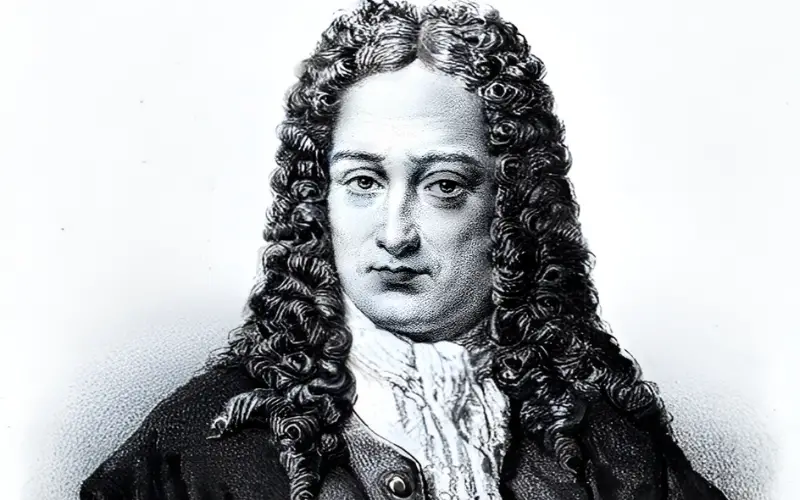
Gottfried Wilhelm Leibniz (1646-1716) was a German polymath who made significant contributions to various fields, including mathematics and philosophy.
Leibniz independently developed calculus, although his work was overshadowed by the near-simultaneous work of Isaac Newton. He introduced the concept of differentiation and integration, including notations such as “d” for differentiation and the integral sign “∫.” His ideas laid the foundation for modern calculus.
Leibniz also made important contributions to combinatorics, developing the theory of permutations and combinations. He introduced the concept of binary notation, which is fundamental in computer science and digital technology.
In mathematics, Leibniz’s work on the principle of sufficient reason, the idea that everything has an explanation, also had a profound influence on the philosophy of mathematics. While he is perhaps best known for his contributions to philosophy and logic, his mathematical ideas continue to be influential in various fields.
Play Trivia!
Challenge yourself and play trivia questions with answers and explanations.
9. Fibonacci
(1170-1250)
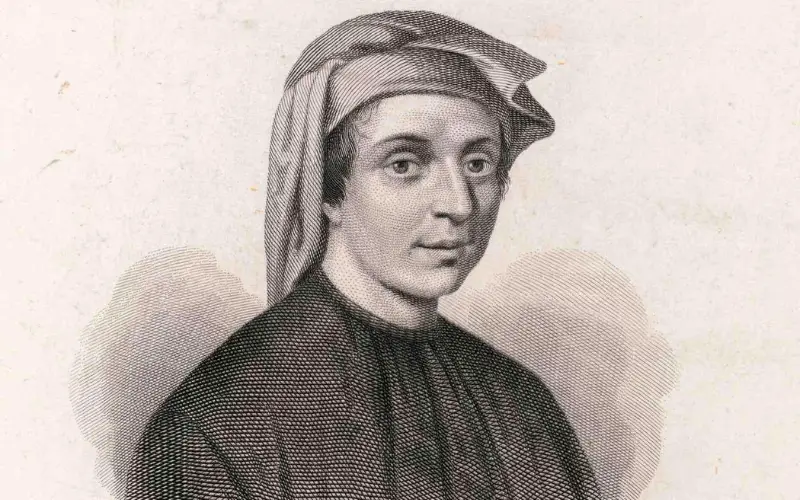
Fibonacci, also known as Leonardo of Pisa or Leonardo Pisano, was an Italian mathematician who lived from around 1170 to 1250. He is best known for introducing Hindu-Arabic numerals, including the digit “0,” to Europe through his book “Liber Abaci” (The Book of Calculation), published in 1202. This text played a crucial role in promoting the use of the decimal number system over Roman numerals.
Fibonacci is also famous for the Fibonacci sequence, a series of numbers where each number is the sum of the two preceding ones (e.g., 0, 1, 1, 2, 3, 5, 8, and so on). This sequence appears in various aspects of mathematics and science, from number theory to biology and art. The Golden Ratio, derived from the Fibonacci sequence, is another concept attributed to him. It represents an irrational number approximately equal to 1.618 and is known for its aesthetic and mathematical significance in architecture, art, and nature. While not as well-known during his lifetime, Fibonacci’s work has left a lasting impact on mathematics and other fields, and he is often considered one of the most influential mathematicians in history.
8. Muhammad Al-Khwarizmi
(780-850)
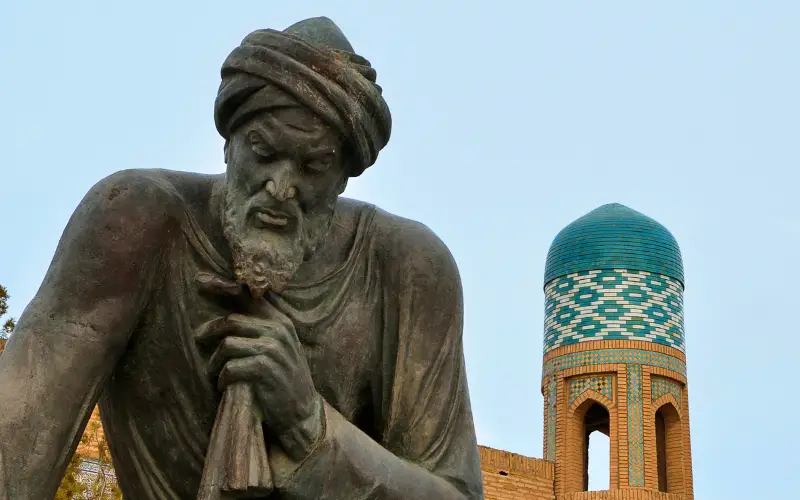
Muhammad Al-Khwarizmi was a Persian scholar who lived during the Islamic Golden Age, around the 9th century. He is often regarded as one of the founding figures of algebra. His most notable work, “Kitab al-Mukhtasar fi Hisab al-Jabr wal-Muqabala” (The Compendious Book on Calculation by Completion and Balancing), introduced systematic methods for solving linear and quadratic equations.
The word “algebra” itself is derived from the title of his book, and Al-Khwarizmi’s work laid the groundwork for the development of algebra as a distinct branch of mathematics. He also contributed to the field of astronomy and made advancements in trigonometry, which were instrumental for later scholars and navigators.
Muhammad Al-Khwarizmi’s name has become synonymous with mathematical algorithms, and his work significantly influenced the course of mathematics and science, not only during his time but for centuries to come.
7. Hypatia
(350-415)

Hypatia was a remarkable scholar and mathematician who lived in Alexandria, Egypt, during the late 4th and early 5th centuries. She is widely regarded as one of the earliest known female mathematicians in history. Hypatia made significant contributions to various fields, including mathematics and astronomy.
In mathematics, she was known for her work on conic sections, number theory, and geometry. Her teaching and commentaries on the works of earlier mathematicians, such as Euclid and Diophantus, were highly influential. Hypatia’s efforts helped preserve and expand the knowledge of classical mathematics during a time when the Roman Empire was undergoing significant changes.
Her work and dedication to education made her a prominent figure in the academic and intellectual circles of her time. Unfortunately, Hypatia’s life was tragically cut short when she was killed in 415 CE, a victim of religious and political tensions in Alexandria. Despite her untimely death, her contributions to mathematics and learning left a lasting legacy.
Read More Fun Facts
Learn more fun facts with Trivia Mastermind content.
6. Thales of Miletus
(624-546 BC)
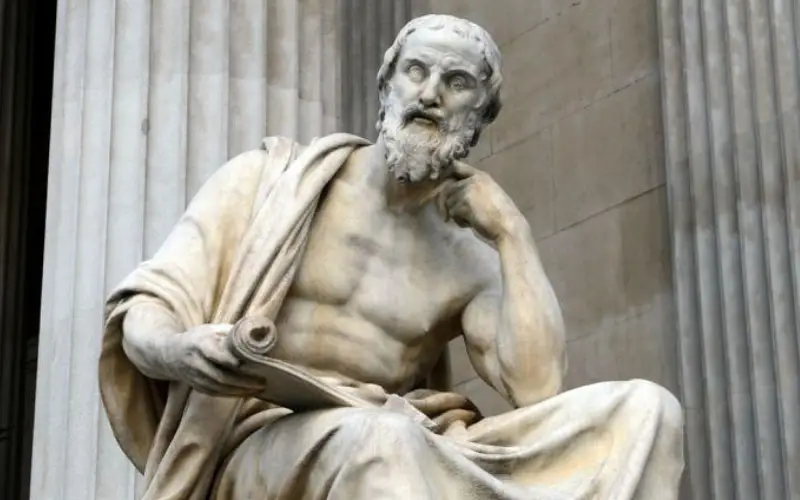
Thales of Miletus, who lived around 624-546 BC, is often regarded as the first philosopher and mathematician in ancient Greece. He was a prominent figure in the development of early Greek philosophy and mathematics.
Thales is famously associated with geometric principles and is credited with several mathematical contributions. He is often referred to as the father of geometry for his work on the properties of triangles. Thales is believed to have been one of the first to formulate theorems in geometry, particularly related to the properties of right triangles. One of his most famous achievements is the theorem that states that a triangle inscribed in a semicircle is a right triangle. This theorem laid the groundwork for future developments in geometry.
While his exact writings haven’t survived to the present day, Thales’ mathematical and philosophical ideas heavily influenced later Greek mathematicians, setting the stage for the great mathematical advancements that followed in ancient Greece. His work marked the beginning of a long tradition of mathematical inquiry in the Western world.
5. Galileo Galilei
(1564-1642)
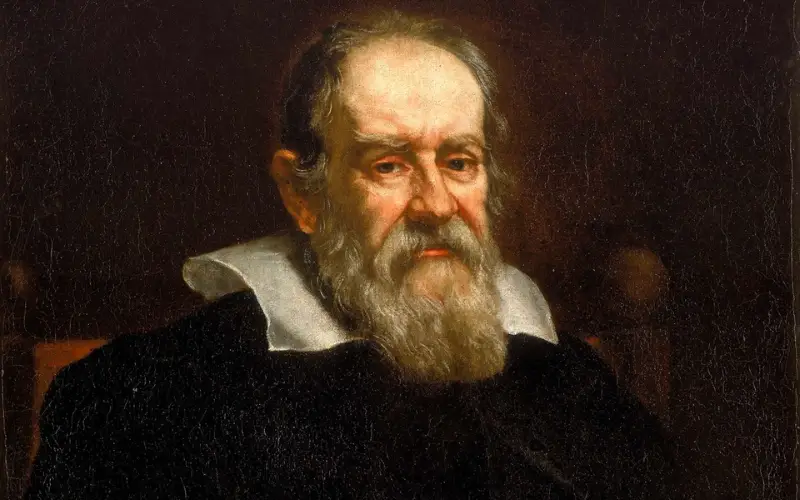
Galileo Galilei, who lived from 1564 to 1642, was an Italian scientist and astronomer whose work made a profound impact on the development of modern physics and mathematics. Galileo is often considered the father of modern observational astronomy, physics, and the scientific method.
In terms of mathematics, Galileo made significant contributions to the understanding of the motion of objects. He is credited with formulating the law of falling bodies, which describes how objects accelerate as they fall under the influence of gravity. He also laid the foundation for the scientific study of motion by using mathematics to describe the paths of projectiles and the behavior of pendulums. Galileo’s emphasis on experimentation and quantification was a crucial step in the evolution of modern science and mathematics.
Moreover, his use of the telescope to make astronomical observations led to groundbreaking discoveries, such as the observation of Jupiter’s moons and the phases of Venus, which provided compelling evidence for the heliocentric model of the solar system proposed by Copernicus. These astronomical observations, along with his mathematical descriptions of planetary motion, played a pivotal role in the transition from the geocentric to the heliocentric view of the cosmos.
Galileo’s mathematical and experimental approach to the physical world helped lay the groundwork for the scientific and mathematical advancements that followed, shaping the course of modern science and mathematics.
4. Johannes Kepler
(1571-1630)
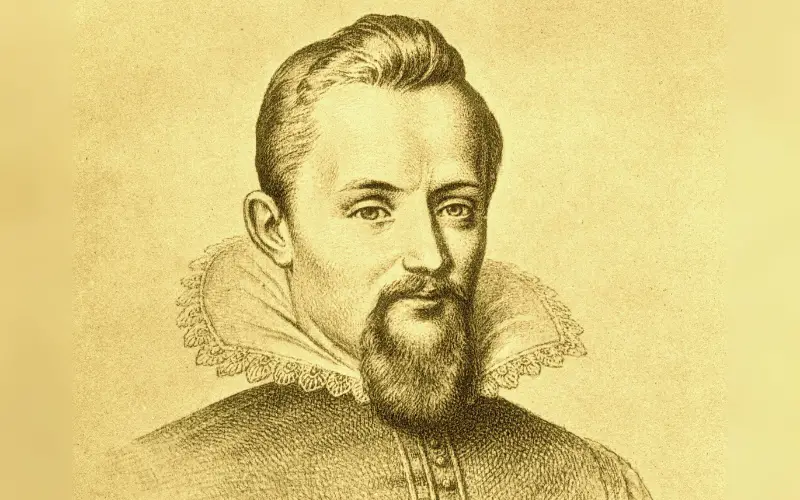
Johannes Kepler (1571-1630) was a German mathematician and astronomer who made profound contributions to our understanding of the motion of celestial bodies. Kepler’s work laid the foundation for modern astronomy and greatly influenced the development of mathematics and physics.
One of his most significant accomplishments was the formulation of his three laws of planetary motion. Kepler’s first law, known as the law of ellipses, described the shape of planetary orbits as elliptical rather than circular. His second law, the law of equal areas, explained that planets move at varying speeds along their orbits, but the line connecting a planet to the sun sweeps out equal areas in equal times. The third law, known as the law of harmonies, established a mathematical relationship between a planet’s distance from the sun and the time it takes to complete its orbit.
These laws transformed our understanding of planetary motion and were instrumental in the later development of Isaac Newton’s laws of universal gravitation. Kepler’s work provided the mathematical framework that helped shape modern celestial mechanics and our comprehension of the cosmos. His contributions were pivotal in advancing both astronomy and mathematics during the Scientific Revolution.
Play Trivia!
Challenge yourself and play trivia questions with answers and explanations.
3. Euclid
(300-265 BC)
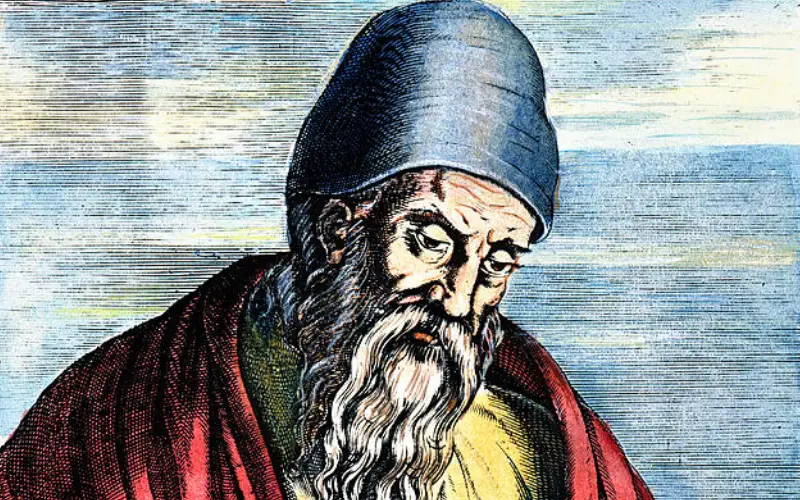
Euclid (c. 300 BCE) was a Greek mathematician known as the “Father of Geometry.” He is celebrated for his work “Elements,” a comprehensive compilation of mathematical knowledge from his time. In this groundbreaking work, Euclid introduced axiomatic reasoning and deductive logic as fundamental tools for mathematical proofs.
His contributions to geometry, particularly the study of plane geometry, remain foundational. Euclid’s “Elements” comprises 13 books, covering topics such as number theory, algebra, and solid geometry. His systematic approach and emphasis on rigorous proof laid the groundwork for the development of mathematics as a formal and deductive science.
Euclid’s influence extended far beyond his era, and “Elements” served as the primary mathematics textbook for over two thousand years. His work not only shaped the course of mathematics but also influenced the development of science, philosophy, and education for centuries to come.
2. Archimedes
(287-212 BC)
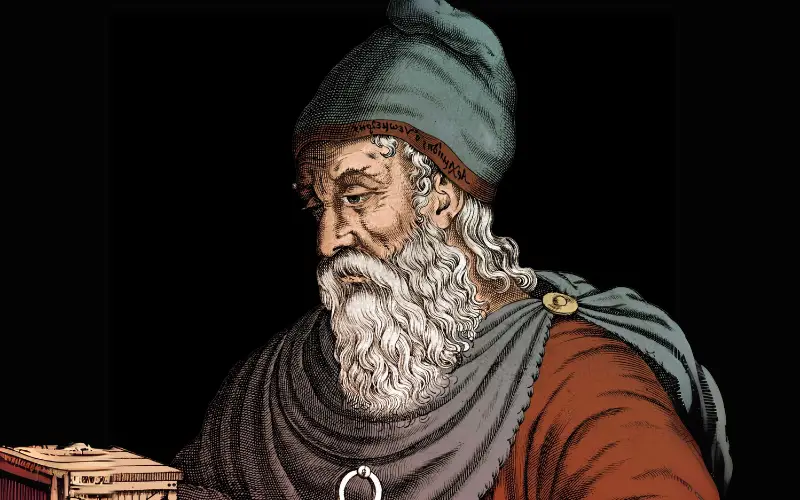
Archimedes (c. 287-212 BC) was an ancient Greek mathematician, physicist, engineer, and inventor. He is best known for his contributions to geometry and mechanics. Archimedes made significant advancements in geometry, particularly in the calculation of areas and volumes of various shapes. He is famous for developing the method of exhaustion, a precursor to integral calculus, to calculate these quantities.
One of his most famous discoveries, known as Archimedes’ Principle, states that the buoyant force on an object submerged in a fluid is equal to the weight of the fluid that the object displaces. This principle is fundamental to understanding flotation and the behavior of objects in liquids.
Additionally, Archimedes developed a system of levers and pulleys that laid the foundation for the field of mechanics. His inventions and mathematical insights had a profound and lasting impact on science and engineering, influencing later mathematicians, physicists, and engineers throughout history. Archimedes is often regarded as one of the greatest mathematicians and scientists of antiquity.
1. Isaac Newton
(1642-1727)
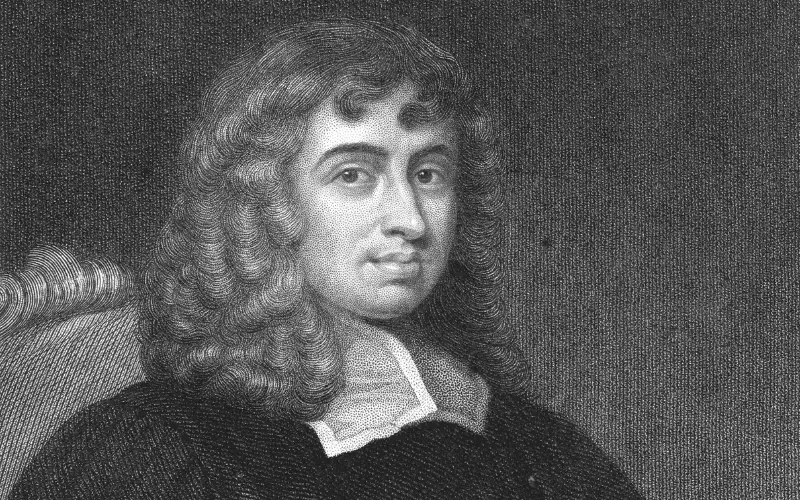
Isaac Newton (1642-1727) was an English physicist, mathematician, and astronomer who made groundbreaking contributions to several areas of mathematics and science. He is most famous for formulating the laws of motion and the law of universal gravitation, which laid the foundation for classical mechanics and our understanding of how objects move and interact with each other. Newton’s “Principia Mathematica” is one of the most influential scientific books ever written.
In mathematics, Newton, along with Gottfried Leibniz, independently developed calculus. He made significant strides in the study of infinite series, binomial theorem, and mathematical notation, which are fundamental concepts in mathematics. Newton’s work in optics, including the understanding of color and the invention of the reflecting telescope, further expanded his contributions to science.
Newton’s ideas revolutionized the scientific worldview and set the stage for modern physics and mathematics. His laws of motion and law of universal gravitation became cornerstones of classical physics and held sway until the advent of Einstein’s theory of relativity in the 20th century. Isaac Newton’s work has had a profound and enduring impact on mathematics, physics, and our understanding of the natural world.
Conclusion
As we conclude our journey through the lives and contributions of the 15 most important mathematicians in history, it becomes abundantly clear that these remarkable individuals have shaped the very foundations of mathematics, science, and the world as we know it. From ancient scholars like Euclid and Archimedes to modern visionaries like Cantor and Lovelace, the mathematical landscape has been enriched by their insights, creativity, and unrelenting pursuit of knowledge. These mathematicians have not only solved complex equations but have also ignited our curiosity and broadened the horizons of human understanding. Their enduring legacies remind us that the pursuit of knowledge knows no bounds, and as we stand on their shoulders, we too can continue to explore the uncharted territories of mathematics, opening doors to new realms of discovery and innovation.
Read More Fun Facts
Learn more fun facts with Trivia Mastermind content.
Play Trivia!
Challenge yourself and play trivia questions with answers and explanations.
Recent Posts
Science Trivia - Astronomy ...
Step into a realm of nostalgia as we embark on a journey through the annals of pop culture and bid farewell to 35 recently obsolete technologies. In the ever-evolving landscape of innovation, certain...


